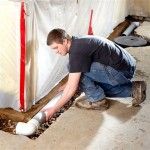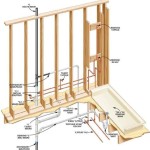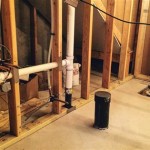What Is a Good Humidity Level for My Basement?
A basement, often considered a hidden space within a home, can be susceptible to humidity issues. Maintaining the appropriate humidity levels in your basement is crucial for several reasons. High humidity can contribute to mold growth, wood rot, and unpleasant musty odors, while low humidity can lead to dry air and discomfort. Understanding what constitutes a suitable humidity range for your basement is essential for creating a healthy and comfortable living environment.
Ideal Humidity Levels for Basements
The ideal humidity level for a basement typically falls between 30% and 50%. This range offers a balance between preventing moisture-related problems and avoiding excessively dry air. While some argue that maintaining humidity levels closer to 40% is optimal, it's important to consider specific factors that might influence this range.
Factors Affecting Humidity Levels
Several factors can affect basement humidity levels, including:
- Climate: The climate where you reside plays a significant role. Humid climates naturally have higher ambient humidity levels, which can affect basement conditions.
- Basement Construction: The construction materials used in your basement, such as concrete walls and floors, can contribute to moisture buildup.
- Ventilation: Proper ventilation is crucial. Inadequate ventilation can trap moisture, leading to higher humidity levels.
- Water Sources: Leaky pipes, cracks in the foundation, or groundwater seepage can introduce moisture into the basement.
- Usage: Basements used for storage or living spaces will have different humidity requirements compared to those used as unfinished spaces.
It's essential to consider these factors when determining the ideal humidity level for your specific basement.
Consequences of High Humidity
Excessive humidity in a basement can lead to several problems:
Mold Growth
Mold thrives in moist environments. High humidity creates ideal conditions for mold spores to germinate and grow. Mold can cause respiratory problems, allergies, and other health issues. It can also damage building materials.
Wood Rot
Wood rot is a serious concern in humid basements. High humidity weakens wood structures, making them vulnerable to decay and infestation. This can lead to structural damage and compromise the integrity of your home.
Musty Odors
High humidity contributes to the development of musty odors. Moisture trapped in the basement can create a stale and unpleasant smell, making the space uncomfortable to inhabit. This is particularly true in finished basements used for living purposes.
Consequences of Low Humidity
While high humidity is often the primary focus in basements, low humidity can also pose issues:
Dry Air
Low humidity can create dry air, which can cause discomfort and irritation. Dry air can lead to dry skin, chapped lips, and even respiratory problems.
Static Electricity
Low humidity can increase static electricity. This can be annoying and even create safety hazards, especially if you're handling electronics or flammable materials.
Cracking Wood
Dry air can cause wood to shrink and crack, particularly in finished basement spaces. This can damage furniture, flooring, and other wooden fixtures.
Tips for Managing Basement Humidity
Here are some effective tips for managing humidity levels in your basement:
Ventilation
Ensure proper ventilation to allow fresh air circulation. Open windows and doors when possible, and consider using a fan or dehumidifier to remove excess moisture.
Moisture Control
Address any sources of moisture, such as leaky pipes or cracks in the foundation. Repair these issues promptly to prevent further moisture buildup.
Dehumidifiers
A dehumidifier is a valuable tool for controlling humidity. Choose a dehumidifier suitable for the size of your basement and operate it regularly, especially during humid seasons.
Sealing and Insulation
Seal cracks and gaps in basement walls and floors to prevent moisture from entering. Insulating your basement can also help control humidity levels by reducing heat transfer, which can contribute to condensation.
Regularly monitoring your basement humidity levels is crucial. Invest in a hygrometer to accurately measure humidity levels and adjust control measures as needed. By implementing these tips and maintaining a suitable humidity range, you can create a healthy and comfortable environment for your basement.

How To Achieve An Ideal Basement Humidity Of 30 50

Dehumidifier Setting Chart What Should Be Set At

A Guide To Controlling Nc Home Humidity Newcomb And Company

How To Achieve An Ideal Basement Humidity Of 30 50

What Is The Ideal Basement Humidity Level Epp Foundation Repair

How To Achieve An Ideal Basement Humidity Of 30 50

How To Achieve An Ideal Basement Humidity Of 30 50

How To Lower Your Basement S Humidity Level

Hot In Here How To Maintain Ideal Indoor Humidity Summer

What Is The Ideal Basement Humidity Level Epp Foundation Repair








